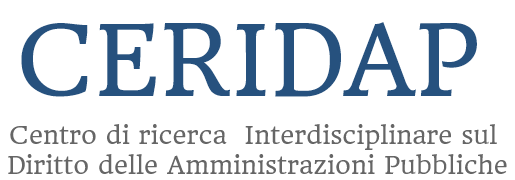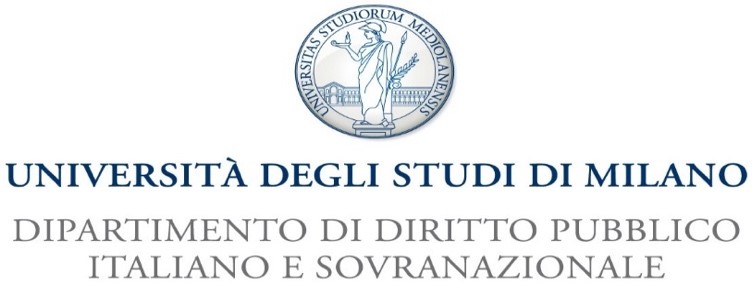Sponsored by



Forum for Public and Common Goods
@ Pre-COP 2021 (Milan)
Climate Change and New Technologies:
Aligning Public Administration and Social Activation around Decentralized Local and Global Solutions
Friday 1 October 2021
10:00 to 18:00 CET
In Milan, and Online
Sala Crociera Alta di Giurisprudenza
via Festa del Perdono 7, Milan, Italy
By invitation only
Request an invite: https://forms.gle/7PAUPRQLV6zAgjYE9
Roundtables
For the first Forum, we are organizing a series of roundtable discussions in Milan on October 1, from 10:00 to 18:00 CET, which will be simultaneously accessible to participants, online. Please find below the topics, questions, and selected participants and invitees for the discussions. We have invited some participants to present their work and projects relevant to certain discussion topics at the Forum. You are warmly invited to participate in any and all of these discussions.
Papers prepared for the discussions will be circulated ahead of the Forum. Proceedings and collaborations at the Forum will be consolidated and prepared for distribution after the Forum in a special edition of the Stanford Journal of Blockchain Law and Policy (as a collection of peer reviewed papers), and in the MIT Computational Report (as rich media content such as videos, podcasts, visualizations, etc., and as reproducible software and data projects.)
Topic 1: Collective Imagining towards New Economic Models of Value
The current dominant systems for measuring and producing social value are out of date. Markets can be hugely powerful tools of innovation but thus far, only for innovation that produces monetizable value.
At the same time, the decoupling of wellbeing from material wealth past certain thresholds has demonstrated the huge importance of non-material value creation as a focus of governance.
- What can value frameworks from the world of art teach us about other value frameworks such as environmental protection or community cohesion, to mobilise resources towards their greatest potential for welfare.?
- How might we enable collaborations between artists, data scientists, technologists, and governance professionals to support the collective development of these value frameworks, marshalling markets to foster innovation.
- What role can these collaborations play in collective imagining towards greater awareness and emotional resonance with issues such as climate change and biodiversity loss?
Topic 2: The Rights of Nature
To what extent can we conceive of the rights of nature, or environmental rights, as fundamental rights? How can technology help implement them? What are the risks and challenges in doing so?
How can we develop open-source protocols and applications that enable the agency of non-human organisms to act in their own interest and to produce value in their own right, and go beyond common approaches towards sustainability and break the mantra of human domination over ‘nature’?
Why are some corporations seeking to appoint rivers and forests as members of their governing boards?
What does it look like for a forest to represent itself in legal actions against entities harming it?
Topic 3: Green New Deals: Climate Data Policy, Deep ESG Finance, and Interoperability for Polycentric Governance
Legislators and regulators in political and financial institutions around the world are considering various ‘Green New Deals’ alongside policies and compliance frameworks governing ESG reporting standards.
- What are effective pathways for regulation and governance to manage the dynamics related to AI in implementing environmental objectives?
- in which field and how can AI strengthen EGD (European Green Deal)?
- is the path taken by the EU within the environmental and legislative sector a good one?
- can data governance and data regulations at all levels help to ensure that relevant AI systems make their decisions in accordance with principles of an ecological common good?
Topic 4: Citizen Sovereignty, Algorithmic Transparency, and Data Dignity for Equitable Planetary Governance
How can individual citizens benefit from new ecosystems of legal protections and tools focused on ‘data dignity’ that can support them in managing and maintaining sovereignty over their data?
How do tools, frameworks, and policies around algorithmic transparency combine to support greater choice and agency for citizens and communities in choosing services and products that support ecological and planetary health?
What are the potential ways in which these new ecosystems can support data governance frameworks that empower citizens to direct their attention and resources to new economic value frameworks that they align with, such as climate action.
Topic 5: Blockchain Standards and Frameworks for Impact
NFTs (non-fungible tokens) represent a developing standard of smart contracts within blockchain systems, which have caught the attention of the art world through their capacity to represent rights and value in relation to digital artworks.
A range of problems with current frameworks have been identified and we will be discussing proposals for new legal standards to support governance systems for new ways of representing value, with a focus on artistic and creative collaboration, as well as royalty distribution and remuneration rights models.
Further, NFTs, DAOs (Decentralized Autonomous Organizations) and smart contracts are being developed for use in MRV (Measurement, Reporting and Verification) frameworks related to impact.
These have the potential to be integrated into a wider ecosystem of decentralized systems, including for oracles, data interoperability and retroactive public goods funding around climate projects.
How do we govern these systems, and what are the effects of an increased use of AI systems on the natural environment and developments such as anthropogenic climate change?
More about the Forum for Public and Common Goods
A radical collaboration between a broad coalition of law, policy, public administration, technology, data governance, activist, arts, ecology, humanities and scientific ecosystems, organizations, and individual leaders, is presenting and invites you to help potentiate an inclusive and interdisciplinary forum for solutions to the crisis in climate and biodiversity loss. The first forum will coincide with COP26 events in Milan 🇮🇹 (1 October 2021) and Glasgow 🇬🇧 (1 – 12 November 2021).
The forum is comprised of:
An interdisciplinary academic conference series. Researchers and project-developers present their work at the intersection of public administration, data governance, social organizing, and systems that integrate new technologies (e.g. A.I., IoT, and blockchain). Taken together, these promise innovative approaches to collective management of local and global common risks and resources.
A digital art series. Communities of creators and blockchain developers have been experimenting with new ways of connecting their creative work to local and global sustainability and regeneration projects. This series will showcase the data, stories, meaning, and measurable impact behind these collective efforts to address the crises at hand.
An online collective sensemaking space. Perpetually accessible to the general public. Speaker presentations and discussions from the conference are streamed. The digital artworks and associated impact-projects will be available for communities all around the world to remix into their own contexts and common purposes.
The forum is working towards:
- Participatory imagining, perceiving and sensemaking activities that restore our shared connection with nature and one another.
- Developing shared narratives, frameworks, methods, and approaches for collectively building a positive future that can enable all beings to flourish together.
- Highlighting legal, policy, technical, and artistic interventions, which can be collaboratively developed and deployed to realize this future.